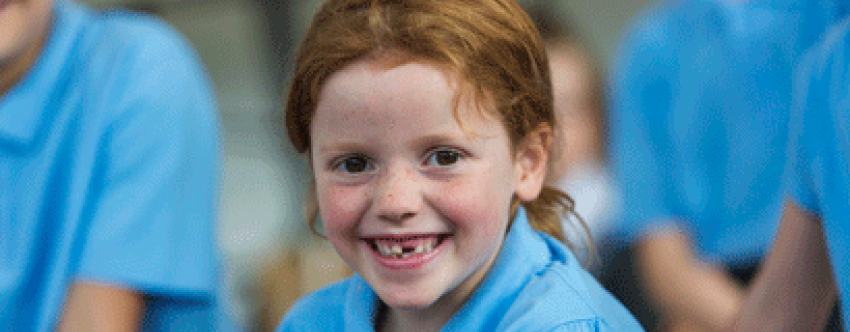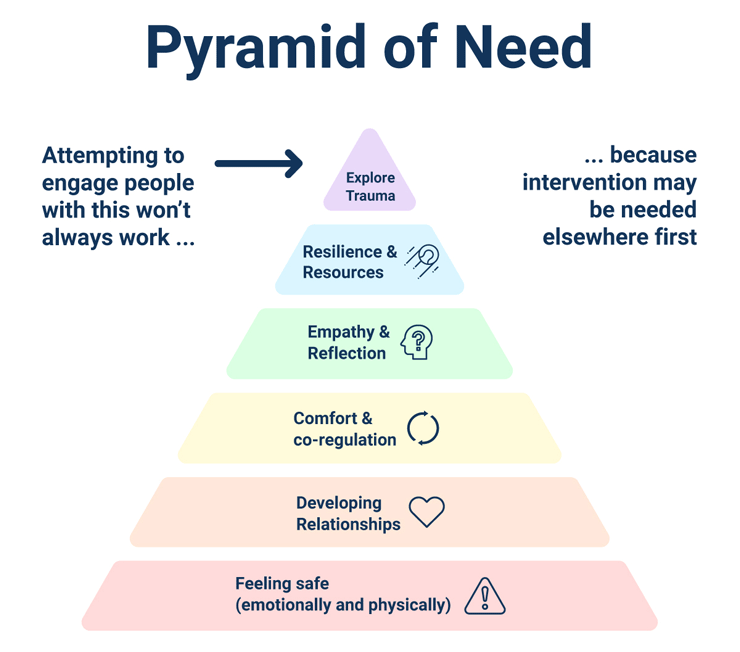News & Views

Why are some pupils more resilient than others?
You may have noticed that some of your students were able to bounce straight back into routines after the summer break, whereas others may have needed additional support. There is no right or wrong way and every child’s experience of transitions will be different.
Schools need to be mindful of these differences and create safe spaces to enable students to develop at their own pace and build resilience over time.
According to the Mental Health Foundation, resilience ‘refers to our ability to cope with the normal stress of life, as well as being able to bounce back from crises.’
Pyramid of Need
Resilience is not something children are born with but can be developed over time. Based on Maslow’s Hierarchy of Needs, the Pyramid of Need was created by Kim Golding (2015), to explore the therapeutic needs of traumatised children.
Resilience is the penultimate element towards the top of the Pyramid of Need. This shows that without a solid foundation like feeling physically safe and developing trusted relationships, students are unable to form key life skills to build resilience.
Let’s explore the Pyramid of Need to see why some children are more resilient than others.

1. Feeling safe
All children (and staff) need to feel safe and supported in school environments. For this reason, emotional and physical safety are at the starting point of the pyramid. A structured sense of familiarity, consistency, clear boundaries and knowing where to go if or when they need emotional support are essential.
How are you providing a sense of emotional and physical safety in your school?
2. Developing relationships
Connecting with others provides an opportunity for greater self-awareness and strengthens communication skills, particularly at times of need. This enables children to develop social skills, learn from their peers/adults, stand up for themselves and feel like they’re part of a community.
Are you providing a safe space for children to build friendships in your setting?
3. Comfort and co-regulation
When students have established relationships with peers and adults, a sense of openness, belonging and trust begins to develop. To help children navigate their way through the ups and downs of school life, a support network is key to sharing comfort, guidance and boosting each other’s morale.
Do the students in your setting have a sense of belonging and feel supported?
4. Empathy and reflection
A foundation has now been laid for students to reflect and develop greater empathy and compassion for themselves and others. Developing a growth mindset enhances the quality of students’ thoughts and their ability to be more flexible and kinder to themselves when things may not have gone to plan.
When was the last time you asked your students to pause and reflect for a moment?
5. Resilience and resources
To build resilience, all four elements detailed above need to be in place first. While this will be different for every young person, consistency, clarity, differentiation, emotional regulation tools and a sense of belonging are imperative. Without this foundational base, children cannot build resilience.
Which area of the pyramid needs your focused attention today?
6. Explore trauma
Trauma is an emotional response to a distressing experience. The uncertainty of the pandemic, including remote learning, loss of relatives and a phased return to school are all examples of potentially distressing events. Children benefit from the support of a trauma-informed practitioner, who provides the right tools and practical advice in a way that suits their needs.
All of these steps can help build resilience and be adapted for different age groups. This article also aims to clarify that resilience is not just about the ability to ‘bounce back’ during difficult times because, as shown in the Pyramid of Need, there are many other factors involved.
Note: if you are supporting a child at risk and you’re concerned about their wellbeing or safety, please talk with a member of your school’s senior leadership team, mental health lead or safeguarding officer.
The Pupil Resilience Award equips teachers with multiple ways to boost pupil resilience in their schools.
About the author

Nicola Harvey is a former senior teacher, author and currently a digital mental health manager for a national youth charity. Her books, Mindful Little Yogis and Self-Care Activity Book for Kids, explore the importance of using inclusive wellbeing strategies to support children and young people. She is passionate about mental health and has a firm interest in mindfulness, diversity and inclusion. You can follow Nicola on Twitter @HarveyHeals.